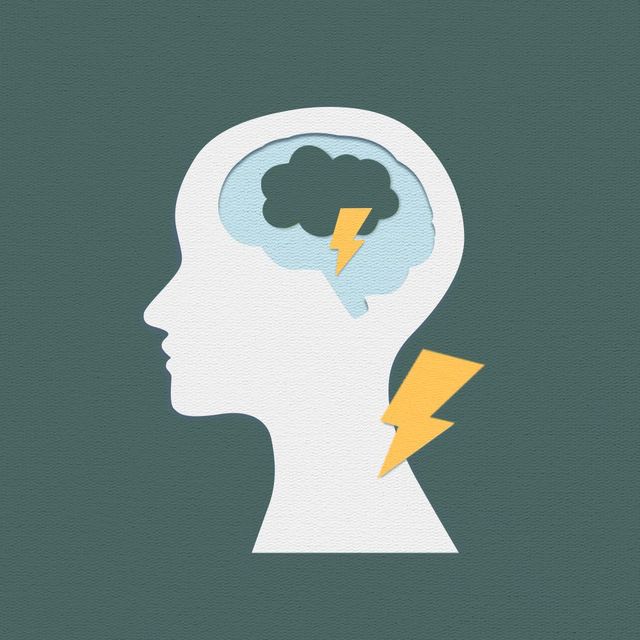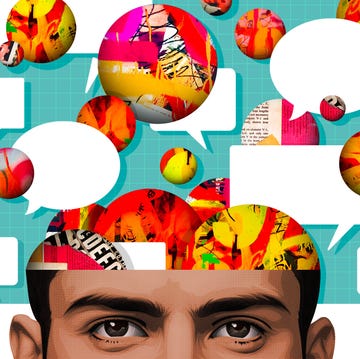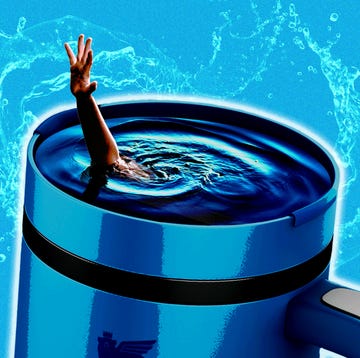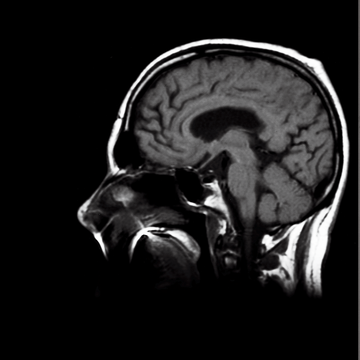People with bipolar disorder experience dramatic changes in emotion, mood and energy, sometimes all in the same day. “It’s like a roller coaster ride — I’m different day to day and hour to hour,” says Nicole, 30, of Denver, CO who was diagnosed with bipolar disorder six years ago. “I have periods when I’m very creative and outgoing — people describe me as being more attractive and alluring. I have a higher sex drive, and I do a lot of writing and artwork. But then I slip into a depressive state, and it feels like being in wet cement. I just want to curl up in the fetal position and sleep all day.”
Though the mania stage can seem exhilarating, all that energy may have negative consequences, says Mauricio Tohen, M.D., DrPH, chairman of psychiatry and behavioral sciences at the University of New Mexico Health Sciences Center. “There is a lot of impulsivity, which can lead to spending money you don’t have, taking risks like driving too fast and becoming sexually involved with strangers.”
For Clisver, 27, of Jackson, TN, manic episodes, before she stabilized on medication, were unpredictable and scary. “I didn’t know what each day was going to be like,” she says. “When I had manic episodes, I’d sometimes see and feel things that weren’t there. Once, when I was young, I went off my medication. I was crossing the street and heard the screeching sound of a car and thought I’d been hit. It was like an out-of-body experience — I didn’t know what was real and what wasn’t.”
The depressive phase, says Clisver, usually started out with feelings of distraction, leading her to procrastinate a lot. It then would take a darker turn: Clisver lost interest in things she loved, like hanging out with friends and family, and gave up even on looking nice. “I’d get to the point of feeling worthless, like there was no point in even getting out of bed each day,” she says.
The most dangerous phase of bipolar disorder is when patients have a mix of depression and impulsivity, Dr. Tohen adds, as that can often lead to thoughts or behaviors involving self-harm or even the desire to stop living. “In the past, I’ve thought about suicide,” says Nicole.
If you're thinking about suicide or are worried about a friend or loved one, call the National Suicide Prevention Lifeline at 1-800-273-8255.
Bipolar disorder affects about 6 million American adults, and it usually shows up in the late teens or early 20s. Medications, including the mood stabilizer lithium, can even out the highs and lows. “It’s not perfect and it doesn’t cure the condition, but it can improve the symptoms,” says Dr. Tohen. Antipsychotics, anticonvulsants, and antidepressants may also be prescribed; cognitive behavioral therapy has been found to be helpful in reducing the severity of symptoms. In cases that don’t respond to therapy or meds, electroconvulsive therapy (ECT) — electrical shocks that stimulate the brain while the patient is under anesthesia — can help some people find relief from symptoms.
Having a support system is extremely important, too. If a family member or loved one has been diagnosed with bipolar disorder, here's how you can be an ally to them:
Encourage a healthy lifestyle
Along with medication and therapy, keeping a regular sleep schedule, exercising, and forgoing alcohol and recreational drugs can help a person with bipolar disorder remain on an even keel. “Going for walks and getting sunlight — or using sunlamps during the winter — helped me when I was in a depressive state,” says Nicole, who adds that resisting junk food and eating plenty of fruits and vegetables also did her good.
Be flexible with plans
When you’re scheduling something with a friend who is struggling, “give him the choice to participate or not,” says Katrina Gay of the National Alliance on Mental Illness. Understand that if he does come with you, he may have to leave early, and that it might be really hard for him to make any long-term commitments.
Don’t give unproven advice
“Some people tell me to get off my medication and take cannabis,” says Clisver. “I’m not against other people using cannabis, but don’t tell me to go off my medication — it helps me.” Some say that anti-pharmaceutical sentiment can feel like judgment. For Nicole, the advice was “Just pray about it”: “I’ve had symptoms my whole life, and that’s what my parents would say. It didn’t help.”
Urge them to stay on their meds
Drugs may have side effects, and during a manic episode, people may feel otherwise so good that they’re tempted to stop taking them. But staying the course is crucial, says Dr. Tohen. “When a patient asks me, ‘How long should I take this medicine?’ my answer is always ‘Until we find a cure,’ ” he says. “I hope that happens in our lifetime, but it hasn’t yet.”
The COVID-19 crisis has made life more challenging for everyone — especially those who are struggling with a mental illness. Visit NAMI’s COVID-19 Resource and Information Guide for additional advice. For additional information about Bipolar Disorder, visit the Depression and Bipolar Support Alliance.
Additional reporting by Lambeth Hochwald
From: Good Housekeeping












